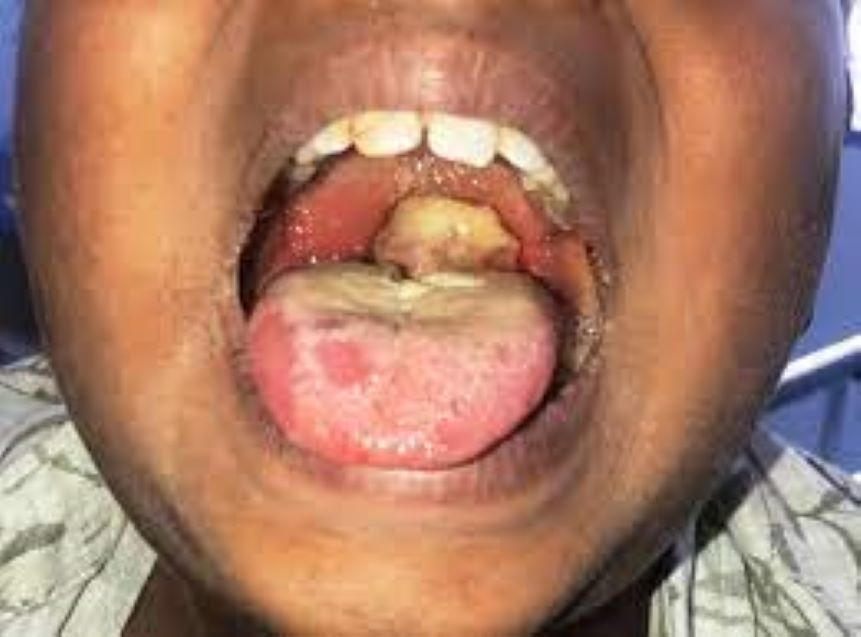By Hassan Zaggi
Northern Nigeria is in trouble again. This time around is the rising cases of Diphtheria. The region is said to account for almost 97 per cent of the Diphtheria cases in the country.
Speaking at a press briefing in Abuja, Tuesday, the Director General of the National Primary Health Care Development Agency (NPHCDA), Dr. Faisal Shuaib, disclosed that 6 northern states including Kano, Yobe, Katsina, Borno, Kaduna, and Bauchi account for majority of the cases in the country.
Kano state alone is said to be a destination for 86 per cent of the cases in the country.
Out of the 8,406 confirmed cases from 114 local government areas in 19 States including the FCT, Kano state has 7,188 (86%), Yobe – 775, Katsina – 232, Borno – 118, Jigawa -23, Bauchi -20.
The cases in other states of the country include Kaduna – 17, Lagos – 8, FCT – 6, Gombe – 5, Osun – 3, Sokoto – 3, Niger – 2, Cross River -1, Enugu – 1, Imo – 1, Nasarawa – 1, Zamfara – 1, Kebbi -1.
Dr Shuaib however, lamented that children are “our most vulnerable citizens.”
Out of the 8,406 confirmed cases, 6,202 (73.7%) were aged 1-14 years; infants: <1%, 1-4 years: 14.4%, 5-9 years: 32.2%, 10-14 years: 27.1%, adults ≥ 20 years: 15%.
On the efforts of the government in recent months, Dr. Shuaib explained: ”These campaigns have been meticulously planned and executed, with a greater focus on the epicenter of the outbreak.
“Kano, as the epicenter of this outbreak, has been at the forefront of our vaccination efforts. Working with the state governments, we implemented rounds 1 and 2 of the vaccination campaign in five high-burden local government areas in February and April 2023 respectively.
“Subsequently, round 3 was integrated with routine immunization intensification, further bolstering our response. An additional 8 LGAs in Kano underwent reactive vaccination exercises in the last week of August.”
The NPHCDA Executive Director further said:” Today, we stand united in the face of a public health challenge that demands our unwavering attention and swift action.
“Diphtheria, a preventable disease, has cast a dark shadow over our communities, particularly impacting our most vulnerable citizens, our beloved children.
” As we confront this crisis head-on, let me share with you the vital role of vaccination in our battle against this formidable foe.
“In this ongoing outbreak, you have heard that some states have been affected, with Kano, Yobe, Katsina, Borno, Kaduna, and Bauchi bearing the brunt, accounting for a staggering 97% of all reported cases. Kano alone carries the weight of over 84% of these cases, making it the epicenter of this outbreak.
“The burden falls disproportionately on our young, with over 73% of cases occurring in children aged 1 to 14 years. Alarmingly, only about 18% of those affected had received any vaccinations.
“As you may be aware, on September 19, 2023, the Coordinating Minister of the Federal Ministry of Health and Social Welfare, Prof Muhammad Ali Pate, set up a national emergency task team for higher level coordination of outbreak response efforts.
“This includes ensuring optimal collaboration of all relevant stakeholders such as political, religious and traditional leaders.
“He also requested that Governors of the affected states should promptly release counterpart funds to ensure availability of operational resources to compliment the Federal Government’s contributions.”
Speaking, the Director General of Nigeria Centre for Disease Control (NCDC), Dr. Ifedayo Adetifa, lamented that: “Our records have shown that most of the confirmed cases of Diphtheria in the country were
unvaccinated against Diphtheria.
“Of the 8,406 confirmed cases, 5,371 (64%) are either unvaccinated or partially vaccinated, 966 (11%) with unknown vaccination status while 2,069 (25%) are fully vaccinated against diphtheria.
“The recently deployed NRRT is offering on-site surveillance and response support to affected States in areas of active case search in communities and health facilities.
“Security challenges are however limiting accessibility of some teams to some locations in
affected LGAs across States.
While encouraging Nigerians to report suspected cases to the nearest health facility, the NCDC Director General revealed that the signs and symptoms of Diphtheria include fever, runny nose, sore throat, cough, and red eyes
In severe cases, he explained, the bacteria produce an exotoxin that causes a thick grey or white patch (pseudo-membrane) on the tonsils and/or at the back of the throat.
This, he said, can block the airway making it hard to breathe or swallow and causing a barking cough.
The neck may swell in part due to enlarged lymph nodes and may frequently confer a bull-neck appearance.



